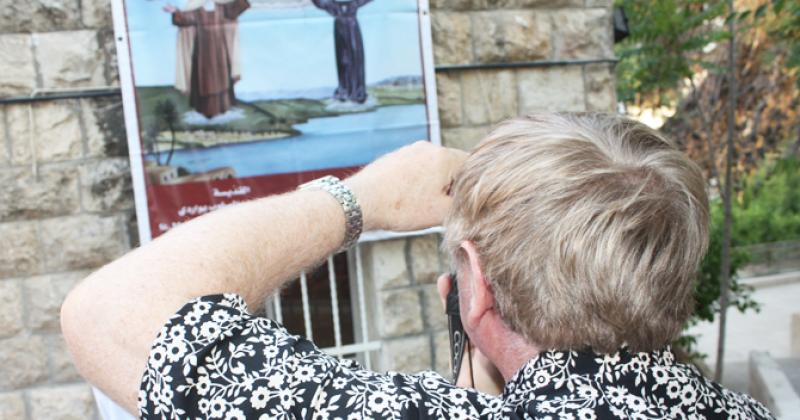The eyes and hearts of millions are focused on Rome, the Italian capital, specifically at St. Peter's Square, for the canonization of two Arab nuns from Palestine. They are namely Sultana Ghattas, known as Mother Marie-Alphonsine who was born in Jerusalem in 1843 and passed away in Ain Karim in 1927. She is the founder of the Sisters of the Rosary congregation that are located in Jordan, Palestine as well a number of Arab and foreign countries. The second one is Sister Mariam Baouardy, who took the name of Mary of Jesus Crucified. She was a Carmelite sister who was born in the Galilee in 1846 and passed away in Bethlehem in 1878. Their canonization is an indication of the attention paid by the Catholic Church towards the Christian presence in Jerusalem, Palestine, the Orient, and the Arab countries.
With the upcoming event marking canonization--which is considered the most sublime appreciation ever offered to a person who experienced the love of God and of people as well who passed away while exuding the scent of sainthood--world media outlets do highlight Arab Christianity in Jerusalem where Mother Alphonsine grew up and succeeded with the support of religious authorities at the time to establish the first Arab local Christian congregation that became a landmark in the Arab world, particularly in the fields of teaching religion and education in general. The Rosary Sisters schools, which are affiliated with the Arab religious congregation, played a salient and pivotal role in Jordan. Considering the congregation in the late 19th century and early 20th century, one can realize that they contributed to giving Arab women a leading role in educating, guiding and enlightening generations among whom are women. Whoever studies the history of Palestine and Jordan in the early 20th century can realize that the churches in general and the religious congregations in particular effectively contributed to eradicating illiteracy at an early time compared to other regions.
The second nun, who was born in Ibileen and lived in Bethlehem, sheds light on the Arab Christian presence in the territories lost in the 1948 war despite pressures to eliminate their Arab identity on the one hand and the Christian identity on the other. Her presence in the Carmel and in Bethlehem sheds light on her ability to establish a religious congregation that keeps isolated from the world and behind high walls. Yet, the scent of Arab sainthood exudes thick walls in Bethlehem and reaches the world as a whole.
The canonization, announced by Pope Francis--which has an Arab Christian flavor with mammoth presence by people from Jordan, Palestine and countries of the Arab Orient who will sing hymns in Arabic--is the best encouragement and hope at present designed to save the Arab Christian identity as well as the sublime image of pluralism which our Orient takes pride in and insists never to abandon. Pluralism, particularly the religious one, is not a commodity for sale since it is the crux of the identity of the Orient.
The canonization of two nuns from Bethlehem is a joy for the Orient as a whole. We have the right to congratulate all children of the Orient. Despite the prevailing sorrows and the blood shed daily, our region is not barren. Since it produces to the world a model of two people who lived with humility and simplicity. They deserve today to be canonized by Pope Francis, the pope of humility and simplicity, and have their photos and names held aloft on top of the most renowned grottos in the world.
Congratulations to the fertile Orient whose soil, stones, water and human beings are consecrated.
